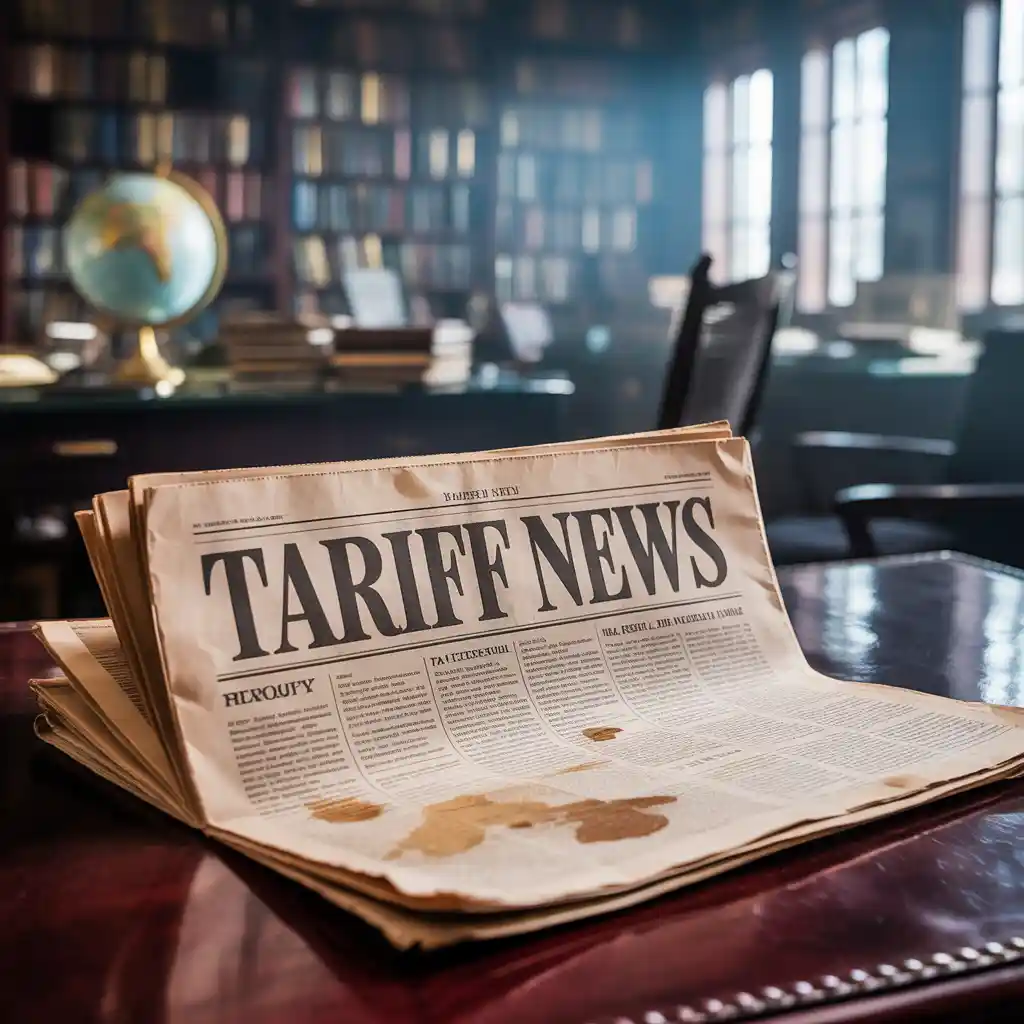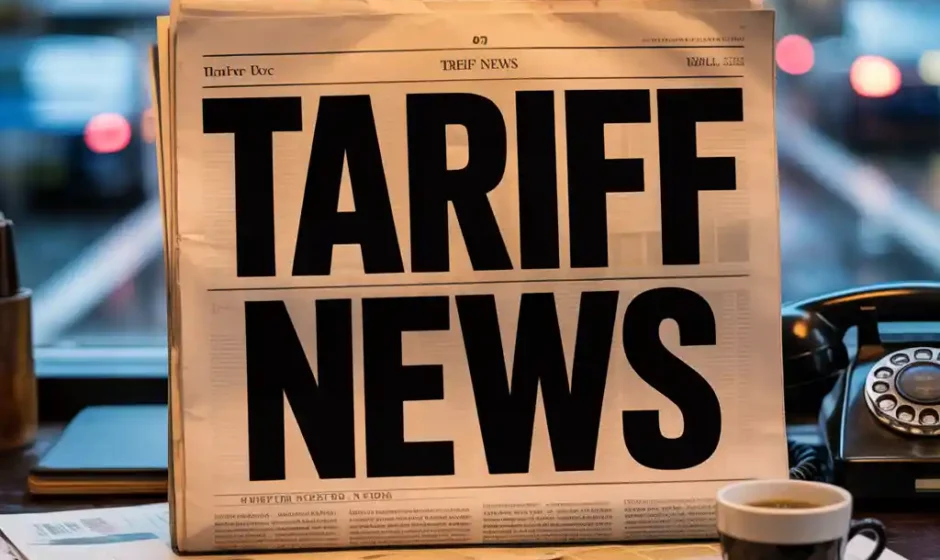Introduction to Tariff News
In today’s ever-evolving global economy, tariff news has become a key point of interest for governments, businesses, investors, and consumers. Tariffs—taxes imposed on imported or exported goods—have far-reaching effects on prices, trade relationships, market competition, and international politics. This article provides a comprehensive look into the latest tariff news, global developments, sector-specific impacts, and future predictions.
What Are Tariffs and Why Do They Matter?
Understanding the Basics
A tariff news is a tax imposed by a government on imported goods. The main objectives behind imposing tariffs include:
- Protecting domestic industries
- Generating revenue for the government
- Regulating trade balances
- Encouraging local production
In the context of tariffs news, any change in tariff structure—be it an increase, decrease, or removal—can significantly influence the domestic and global markets.
Types of Tariffs
- Specific Tariff: Fixed fee per unit of imported good.
- Ad Valorem Tariff: Percentage of the good’s value.
- Protective Tariff: Designed to protect domestic industries.
- Revenue Tariff: Primarily for generating income.
Latest Global Tariff News Headline
U.S. Tariff News
The United States remains a major player in global tariffsnews updates. Recently, the Biden administration announced reviews on the Trump-era tariffs imposed on Chinese goods. This decision could reshape global trade flows and impact inflation.
- The Section 301 Tariffs review on Chinese imports is ongoing.
- The U.S. Trade Representative (USTR) has opened public comments on tariff exclusions.
- Tariffs on steel and aluminum remain points of negotiation with the EU.
European Union Tariff News
The EU has responded to rising protectionism by revising its own trade defense strategies.
- EU imposed provisional tariffs on electric vehicles (EVs) imported from China, citing unfair subsidies.
- Discussions are underway with Latin American countries to lower agricultural tariffs.
China’s Response
China continues to feature prominently in tariffs news, particularly in its reactions to Western trade restrictions.
- China recently reduced tariffs on over 1,000 goods from Asia-Pacific nations under the RCEP agreement.
- Beijing is exploring retaliatory tariffs on tech imports from the U.S. and EU.
Tariff News Impact on Major Industries
1. Automotive Industry
Recent tariff news reports highlight the tension between Western economies and China in the EV sector. Tariffs have made it more expensive to export Chinese electric cars to Europe and the U.S.
- Increased prices for consumers
- Supply chain delays
- Shift of production to tariff-friendly countries
2. Agriculture
Tariffs on soybeans, dairy, and wheat have affected both U.S. and global agricultural markets.
- American farmers face difficulty in selling abroad due to retaliatory tariffs.
- EU and South American countries are adjusting trade routes.
- Food price inflation is linked to trade barriers.
3. Technology and Electronics
Ongoing tariff disputes in the semiconductor and electronics industries have hit global supply chains.
- U.S.-China chip wars influence global tariff news
- Major players like TSMC and Intel are adjusting supply networks
- Increased prices for smartphones and laptops in multiple markets
How Tariff News Affects Consumers
Rising Prices
Tariffs increase the cost of imported goods, and companies often pass these costs to consumers. Whether it’s electronics, food, or clothing, tariff news plays a major role in consumer price hikes.
Limited Product Availability
Trade restrictions caused by tariffs lead to shortages in imported products. This is particularly evident in industries like automotive parts and electronics.
Recent Developments in Tariff Policies
Trade Wars and Retaliation
A significant portion of recent tariff news revolves around retaliatory measures. When one country imposes tariffs, the other often responds with its own set of tariffs.
- U.S.-China trade war escalated in 2018 and continues with fluctuating intensity.
- India imposed tariffs on 28 U.S. goods after steel and aluminum tariffs.
- EU considers retaliatory tariffs against U.S. subsidies to domestic firms.
Free Trade Agreements
Amid the rising tide of tariffs, nations are also working toward tariff-free zones to enhance trade cooperation.
- RCEP (Regional Comprehensive Economic Partnership) includes 15 Asia-Pacific nations.
- African Continental Free Trade Area (AfCFTA) aims to remove intra-African tariffs.
- USMCA replaced NAFTA to better regulate tariffs between the U.S., Mexico, and Canada.
Future Outlook: What to Expect in Tariff News
Predictions for 2025 and Beyond
- Tech sector tariffs will likely increase due to data security and geopolitical concerns.
- Green energy products, like solar panels and batteries, will face scrutiny over subsidies and dumping.
- Countries will rebalance trade deals to reduce dependency on a single supplier (especially post-COVID).
Potential Winners and Losers
Winners:
- Domestic manufacturers
- Tariff-free zones (e.g., RCEP, EU)
Losers:
- Export-heavy countries during trade wars
- Global consumers (due to rising prices)
How Businesses Can Adapt to Tariff News
1. Diversify Supply Chains
Reducing dependency on one country (e.g., China) helps mitigate risk.
2. Restructure Pricing
Businesses should stay ahead of tariff news and adjust pricing models accordingly.
3. Use Tariff Engineering
Altering product design or country of origin to qualify for lower tariffs is becoming common.
Role of Media in Covering Tariff News
Trusted financial and trade media outlets are essential for timely and accurate tariff news reporting:
- Bloomberg
- Reuters
- CNBC
- Financial Times
- The Economist
Following these sources helps businesses make informed decisions.
Tariff News in the Political Landscape
Tariffs are not just economic tools but also political levers.
- Used as negotiation tools in diplomacy.
- Key talking point during elections.
- Subject to lobbying by industries and unions.

Conclusion: Staying Ahead in the World of Tariff News
Tariff news is no longer a niche topic restricted to economists or policymakers. It is a critical issue that affects global commerce, domestic growth, inflation, consumer choices, and international relations. Whether you’re a business owner, policymaker, investor, or consumer, keeping up with the latest tariff news ensures that you’re prepared for the economic shifts and opportunities ahead.
Final Thoughts
- Always monitor credible tariff news sources.
- Diversify supply chains.
- Prepare for price fluctuations and regulatory changes.
- Understand the broader impact of tariff changes on industries and economies.


